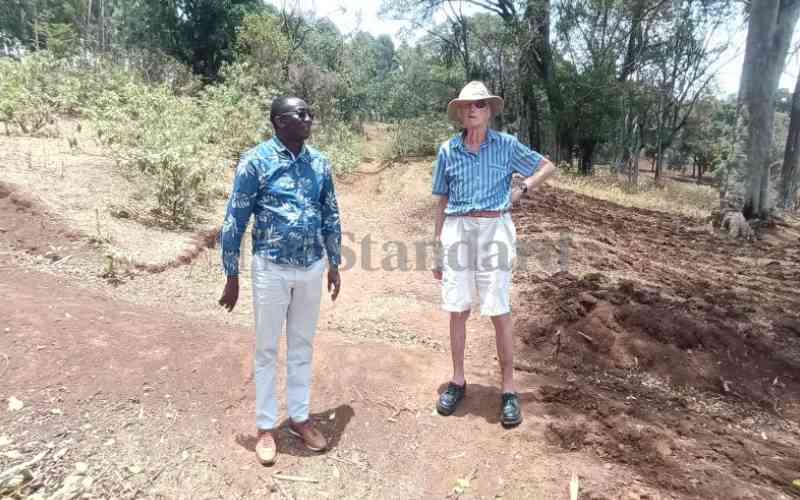×
The Standard e-Paper
Fearless, Trusted News

When Briton Richard Kay Muir acquired land in Sachang'wan, Nakuru County, he hoped to retire there peacefully in 2001.
He loved everything about the land and its surrounding. The weather was perfect and he could not wait to settle his family there.